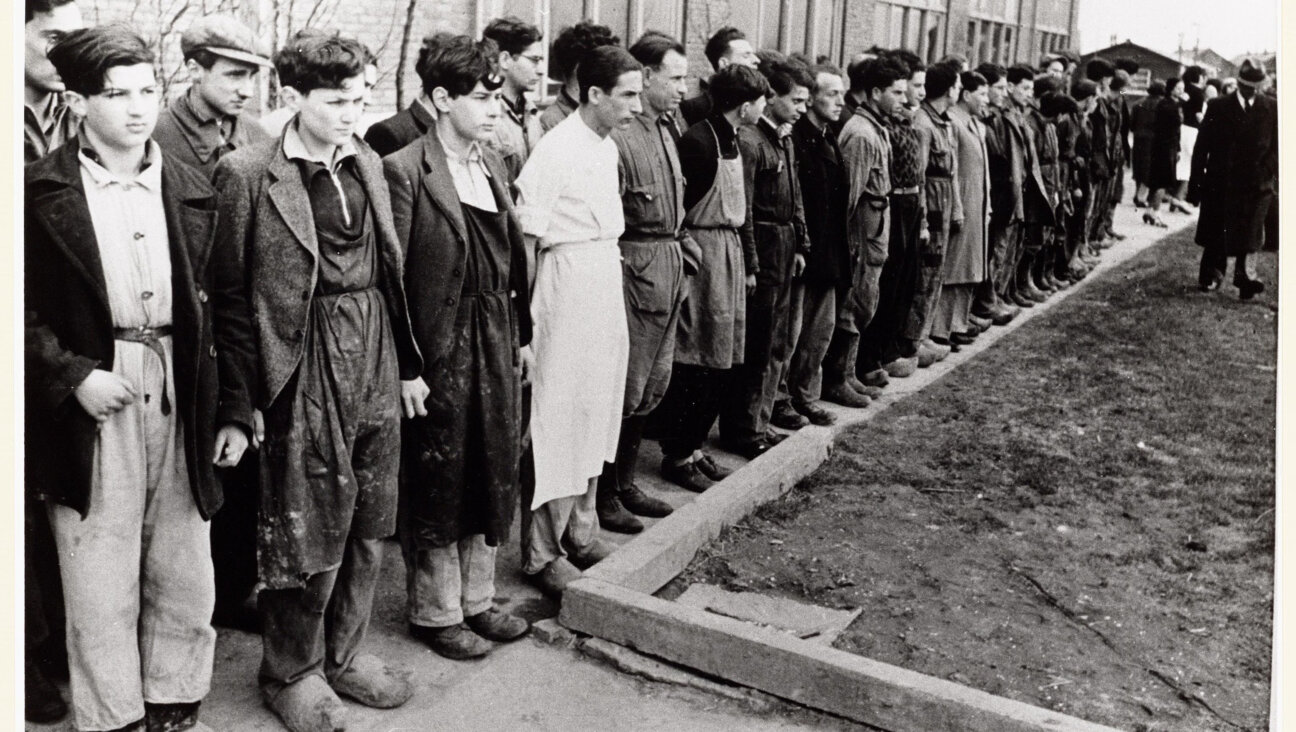Tracing the Legacy of German Jews in America
Who were the German Jews who came to America, and what have they become? Starting Over: The Experience of German Jews in America, 1830-1945, the recently opened exhibition at the Leo Baeck Institute, gives visitors a chance to meditate on these questions as well as to revisit some familiar and not so familiar faces and places: an irresistibly disheveled Einstein receiving his naturalization papers; the illustrious émigré faculty at The New School (including economist Frieda Wunderlich, the school’s first female dean); Otto Preminger and Peter Lorre in Hollywood. With its small but striking collection of artifacts and documents, the exhibition reminds us that the contribution of German Jews to American culture started well before the Nazi period and extended far beyond the achievements of a handful of world-famous scientists, scholars and artists.
German Jews first came to this country in significant numbers during the mid-19th century as part of a much larger trend of German immigrants. Frustrated in their native territories by censorship, antiquated economic policies and repressive political orders, the Germans and German-speaking Jews who came to this country from 1830 to 1870 were often committed democrats and enterprising businessmen with a solid education who quickly became staunch advocates of liberal American values. At the Leo Baeck Institute, we see the medals of a German Jewish soldier who fought in the Civil War and the certificate signed by Ulysses Grant appointing a German Jew as appraiser of merchandise for the port of Evansville, Ind., in 1873. And although it is impossible to document in an exhibition of this sort, Starting Over asks us to consider the cumulative effect on American life of so many talented, educated and forward-looking immigrants whose children and grandchildren have gone on to successful careers in education, research, journalism, politics and the arts. It is this subcutaneous, virtually invisible, but undeniable presence that may be the German Jews’ most significant contribution.
Frequently hailed (or envied) for their intellectual, cultural and economic achievements, the so-called Yekkes have just as frequently been
derided as arrogant, assimilationist, uptight conservatives. Jokes and stereotypes are legion, many of which portray the quintessential German Jew in a three-piece suit (the term Yekke may come from the German word for jacket), overly concerned with the formalities of polite behavior. Freud’s book “Jokes and Their Relations to the Unconscious” recounts numerous jokes about “Western” (i.e. German-speaking) Jews, which suggest that their refined “European” manners are only a facade for the Yiddish-speaking “Eastern” Jews underneath. A classic (if sexist) example is that of the Jewish mother in childbirth who asks for assistance in French and then German but is only taken seriously by her doctor when she cries out “Oy vey!” These attitudes can be found throughout the difficult history of modern Jewish life in German-speaking countries — from the earliest Jewish advocates of bourgeois Enlightenment in the 18th century, through the long struggle for political emancipation in the following century, right down to the experience of persecution, exile and murder in the death camps. Even as Zionists in Israel, the German Jews found themselves parodied as too refined for local conditions, as in one joke: Two travelers in the desert see a long line of people and hear an indistinct buzz of voices; drawing closer, they find a group of “Yekkes” dressed in evening wear and handing bricks down a construction line, all while murmuring “Danke schön, Herr Professor,” “Bitte schön, Gnädige Frau.”
For all the good and bad stereotypes about German Jews — their “genius” and intellect on the one hand, their heavy furniture and social pretensions on the other — the simple sociological truth about them as a group is that their modern development coincided with the emergence of bourgeois German culture. When Jews in Austria and Germany began to receive civil rights in the 18th and early 19th centuries, the German middle classes were poised to assume the leading role in their countries’ political, economic and cultural spheres. German culture exploded onto the European stage with the likes of Goethe, Schiller, Kant, Hegel, Mozart and Beethoven; the German university was founded and quickly became a model for other countries; long dormant economic forces awoke to transform Germany into an industrial and military giant by the end of the 19th century. To these bourgeois cultural and economic transformations, German Jews contributed their own special traditions and skills: their commitment to learning and especially to written culture; their familiarity with foreign languages and lands; their knowledge of commerce and international trade. A unique collaboration ensued. The Jews of Austria and Germany, whose ranks swelled with an undiminished stream of Eastern Jews seeking advancement and opportunity (and whose quick adaptation was facilitated by the linguistic ties between Yiddish and German), became a bulwark of the middle classes, passionately attached to the liberal values, culture and lifestyle that they did much to create. To be sure, Albert Einstein could not have discovered the principles of relativity without his particular insight and genius. But he also could not have discovered them without the German educational system, from its innovative kindergartens all the way to its research laboratories.
Today, more than 60 years after the Holocaust, it is hard to grasp the similarities between Germans and Jews, which in the space of 12 short years became the source of a genocidal antipathy. Early in the 19th century, German Jewish poet Heinrich Heine, alert to the stirrings of anti-Jewish nationalism around him, wrote prophetically that “in a country where books are burned, human beings will be [burned] as well.” However, Heine also recognized the profound similarities between these two peoples: “The former Palastina could be considered an Oriental Germany, just as one might take contemporary Germany for the homeland of holy language, for the maternal soil of prophecy, for the citadel of pure spirituality.” For much of the 19th century, these two groups were still uniquely defined by their language and culture: the Jews as the People of the Book, Germany as “Das Land der Dichter und Denker” (The Land of Poets and Philosophers). Historically, this is perhaps the cruelest legacy of the German Jews: the fact that they were profoundly and inescapably German.













